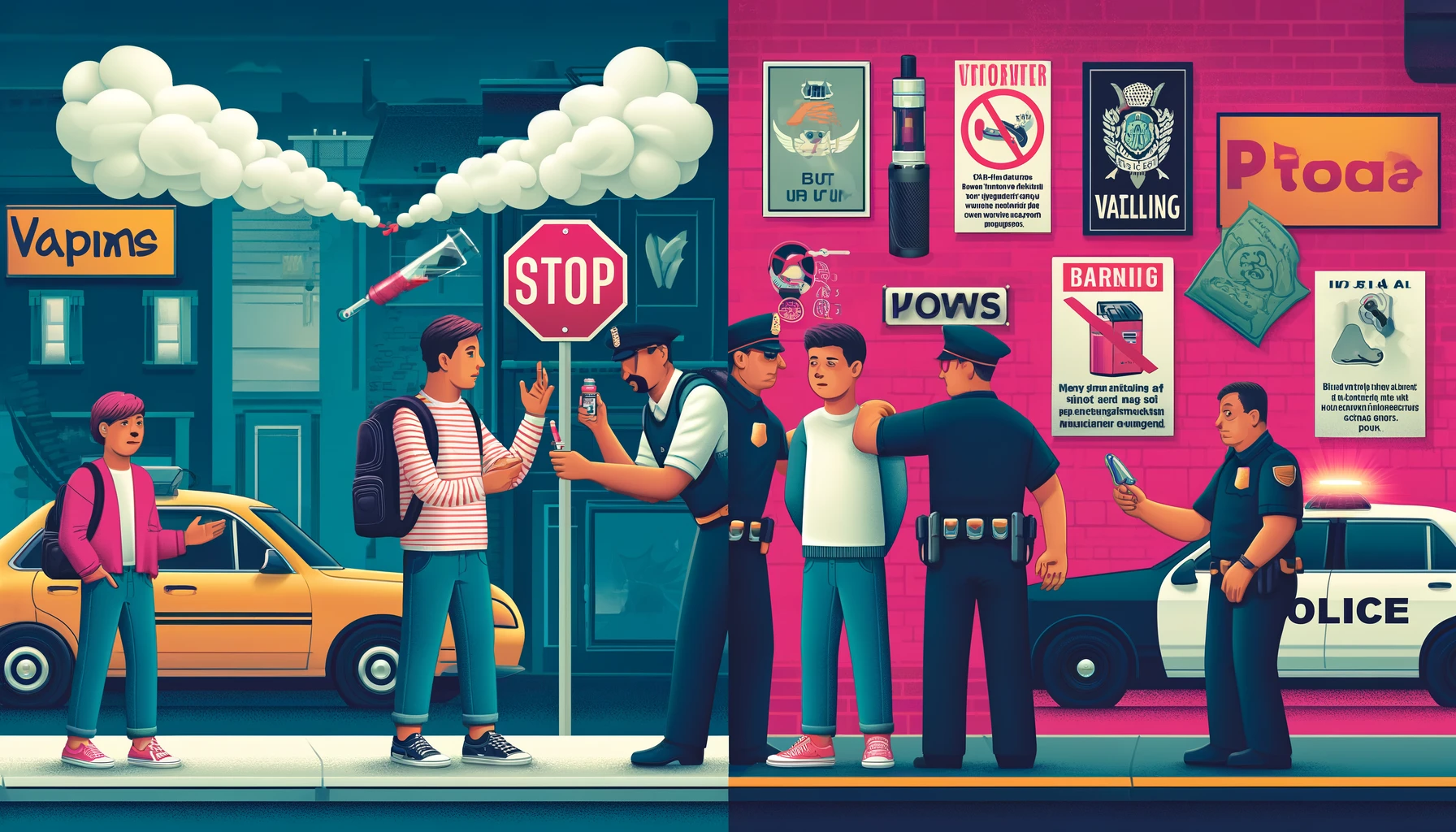No one wants kids vaping. But is Labor criminalising adults who flout the crackdown?

In Canberra on Friday, the Australian Medical Association advocated for the government to enact legislation that would strictly prohibit vaping; these measures are scheduled to go to vote in June.
Labor’s plan to outlaw the importation of vapes and to penalise their commercial possession has not been well received.
The Nationals want vapes subject to the same regulations as cigarettes, including clear package requirements and excise taxes, and without the need for a prescription.
David Littleproud
As a fight for Labour approaches, the Nationals and Greens oppose vaping “prohibition.”
Continue reading
The Liberals occasionally let their junior Coalition partner steer, and Peter Dutton has shown dissatisfaction with prohibition. However, the party also has its ardent opponents of e-cigarettes, such as Sarah Henderson, the shadow education minister, who calls them a “scourge” in classrooms.
The safest route through the Senate is typically taken by the Greens and the crossbench. In addition to endorsing the bill’s passage in an inquiry report this month, Jordan Steele-John, the Greens’ health spokeswoman, cautioned that the party does not “support the prohibition of vapes for adults.”
The party’s alternative is that it “will work towards a carefully regulated scheme that focuses on public health outcomes, minimising the use of vaping products, and reducing harm.”
This is probably going to involve changes to guarantee that people won’t be prosecuted for simple possession, that sufficient resources are available to help people quit, and that only medical professionals will be able to advertise vape products. This week, the party will decide where it stands.
“Parliamentarians who seem to be listening to tobacco-based lobby groups and political donors rather than parents, health authorities, and kids,” was the direct message that AMA President Steve Robson had for them.
He said to ABC News Breakfast, We hope we can get the opposition and other people to do the right thing and not listen to donors and protect Australian kids from vaping.
Later, when pressed for more details, Robson told reporters in Canberra that he was “shocked” and “really disappointed” that the Nationals preferred to tax vapes without a prescription rather than outlaw them. However, he also gave the Greens the cold shoulder.
We believe that the Greens are a party that prioritises the future of the next generation in their policies, and it is obvious that they should support this if they genuinely believe that the health and wellbeing of children are their top priorities.
Despite the fact that cigarettes are more hazardous than vapes, the measure establishes a stricter regulatory framework for the former. Could cigarettes be phased out, as incoming Zealand attempted to do before the incoming conservative government repealed the birth-year ban, to avoid that anomaly?
At the National Press Club in May 2023, I questioned Health Minister Mark Butler about this, and he replied that although vapes were still “relatively new,” cigarettes had been around for a long time.
I would think that governments would have stopped it, would have put an end to it right away, which is what I want to accomplish with vapes, if we had known then, when cigarettes were introduced.
It would be extremely difficult to take any action at this point before vapes become so widespread, so accepted, and so normalised.
It is unfair for well-meaning health activists to imply that those opposed to the ban are driven only by tobacco lobbying or donations—neither of which the Green Party receives. Actually, among other things, they wish to outlaw donations from the tobacco sector.
There are those who actually cherish individual bodily autonomy more than state paternalism. Some believe that prohibition will never succeed. Butler’s conclusion that vapes are not yet mainstream is contested by some.
The administration and the Greens are in negotiations. Butler has stated time and time again that the amendments do not aim to criminalise individual vapers, thus it should be feasible to amend the bill to take their concerns into account.
Vape supplies are displayed on a counter in a vape shop.
According to a Senate committee, Australia should enact legislation banning non-prescription vapes.
Continue reading
Legislation might be used to define what constitutes a “commercial quantity” of vapes, as it is currently determined by regulations.
In an effort to discourage merchants and vendors, the measure also includes an offence of “possessing less than [a] commercial quantity of vaping goods,” with a “personal use” exemption.
“Despite the personal use exemption, there is a non-zero chance that this results in the criminalization of users of illegally obtained vapes,” the Greens have cautioned.
This is because most consumers would find it difficult to provide proof of personal use for products they obtained without a prescription, but they would be required to do so in order to avoid being charged for possession.
While it is widely acknowledged that children shouldn’t vape, this doesn’t mean that legislation that takes practically the strictest conceivable stance should be passed. The government still has to demonstrate that it will be effective.
Furthermore, the measure ought to be amended to ensure that it won’t criminalise individual vapers if that isn’t the intention.
Should you be encountering any of the difficulties outlined in this article, please reach out to us, and our team will try to help in any way possible.

